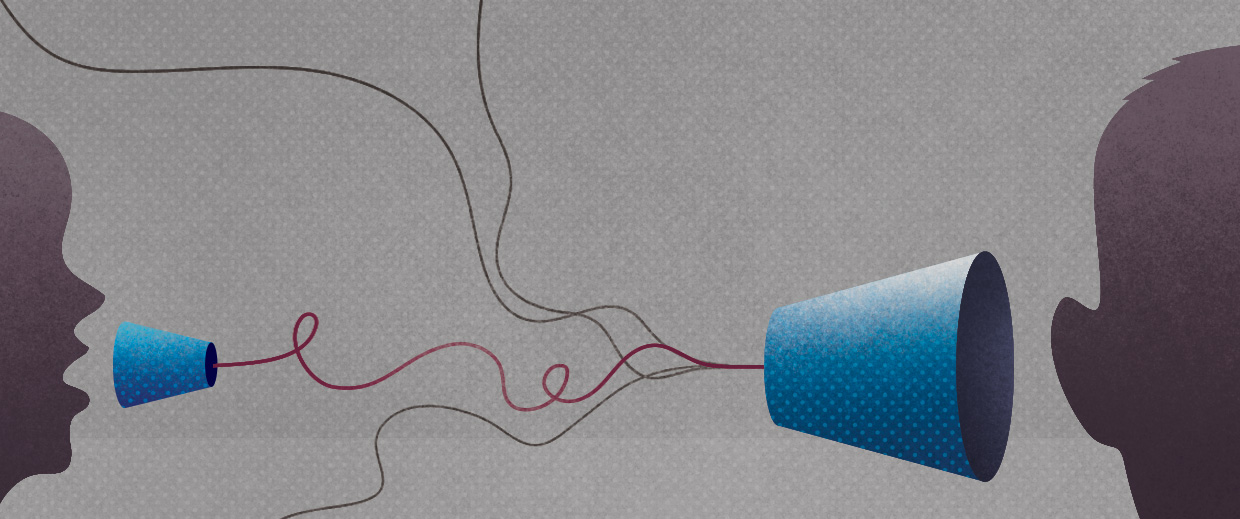Coaching — Can I get a Witness?
As coaches, we need to be present for our clients. Whether we are meeting in-person, connecting on video chat, or talking on the phone—setting ourselves up so we can be authentically present for them is one of the greatest gifts we can give as a coach.

Coaching — Can I get a Witness?

It was a hot day in the UAE — but aren’t they all to one literal degree or another? My day was full of coaching sessions with high potentials, who I had been meeting with periodically for the past eight months.
One particular client walked in and seemed excited to tell me what was on her mind. Once the door had closed and we did a bit of catching-up, she announced she wanted to, “share her dream with me.” I encouraged her and the next thing out of her mouth floored me:
“My dream is to run outside.”
My heart sunk. Something so simple in my world was an aspiration in hers. I could strap on my running shoes anytime and just about anywhere—I’d even done it in her country—and run outside as a Westerner without anyone paying me any mind. She didn’t have that luxury.
How was I supposed to feel in that moment? Ashamed that I took my relative running freedom for granted? Indignant that she didn’t feel comfortable doing that because of cultural conventions or familial restrictions? Sorry that she couldn’t easily fulfil her own dream? I confess all of these thoughts raced through my head. Thankfully, I verbalized none of them because that was not what she wanted or needed.
I just smiled, nodded, and confirmed her goal. I was her witness.
She continued, on a recent trip to the US with her father, she and her sister convinced him to allow them to stay a few extra days in New York City on their own. While there, in mid-winter, she shared her dream with her sister and together they decided to make it happen. They went to a sporting goods store, where they found what sounded like a balaclava for skiing—a type of ski mask that covers the hair and neck— so they could follow a Muslim practice even while running.
They set off to run in Central Park. They ran for hours every day while in New York City—and remember, it’s mid-winter. They loved it and soaked in the exhilaration of the experience; then they went home and told no one.
Until my client told me. I was her witness that she done something hard and important.
Many times as coaches, we have the grand opportunity to be a witness for the person we are coaching. What do I mean by witness? In the Miriam-Webster Dictionary, this role is defined as seeing, hearing, or knowing by personal presence and perception. As a coach, two words stand out in that definition: presence and perception.
As coaches, we need to be present for our clients. Whether we are meeting in-person, connecting on video chat, or talking on the phone—setting ourselves up so we can be authentically present for them is one of the greatest gifts we can give as a coach.
With myriad distractions in each of our lives, it is rare that we have someone fully focused on our agenda and needs for more than a few minutes. There are bottomless social media feeds, texts that arrive at all hours, earbuds blaring the latest music or news, employers that can and do contact us day and night, the needs of family and friends tugging at us for attention, and more.
When we can clear away the clutter, ignore the email that just arrived, and tune out the constant churn of the to-do list in our heads, we can settle into a space where our client is our only priority. From that place of presence, we can hear them better and help them feel understood.
When I demonstrate sole focus on a client, I have been witness to learning and growing. Once clients feel that I truly acknowledge and listen at a deeper level, they are able to fully express themselves. Recently, I have witnessed to clients who:
- Effectively developed stronger employee engagement.
- Navigated a journey to improved health after an anxiety attack.
- Decided to better manage their work life following a conversation with their children.
- Successfully released themselves from some micro-managing tendencies.
To witness we must also be perceptive. Sometimes a witnessing opportunity may pass us by. It could be hidden in a mess of dialogue, it’s a small step on a long road, it isn’t voiced initially but the individual’s body language or demeanor seems changed, or we’re just not paying enough attention.
I firmly believe that to be an effective coach and witness, we must sharpen our listening skills. Perceptive or concentrated listening employs all of our senses. In a prior article, How To Give The Gift Of Feeling Understood: 3 Stages Of Effective Listening, I shared some tips on this subject.
In sum, to be a witness, a coach must be authentically present and employ our skills of perception. When we witness, we can rejoice with our clients, remember with them, and stand as a support in what they are working to accomplish.
My opportunity to witness for my “running” client was an important first step in her continuing development. Since fulfilling her running dream, she’s taken on more challenges at work, even taking on a new role in a different department—one that a few years ago she never would have had the confidence to consider. My act of witnessing helped instill confidence that she can figure out how to achieve her goals and solve her own problems.
I invite you to learn more about the RBL coaching model by reaching out to us here.
It was a hot day in the UAE — but aren’t they all to one literal degree or another? My day was full of coaching sessions with high potentials, who I had been meeting with periodically for the past eight months.
One particular client walked in and seemed excited to tell me what was on her mind. Once the door had closed and we did a bit of catching-up, she announced she wanted to, “share her dream with me.” I encouraged her and the next thing out of her mouth floored me:
“My dream is to run outside.”
My heart sunk. Something so simple in my world was an aspiration in hers. I could strap on my running shoes anytime and just about anywhere—I’d even done it in her country—and run outside as a Westerner without anyone paying me any mind. She didn’t have that luxury.
How was I supposed to feel in that moment? Ashamed that I took my relative running freedom for granted? Indignant that she didn’t feel comfortable doing that because of cultural conventions or familial restrictions? Sorry that she couldn’t easily fulfil her own dream? I confess all of these thoughts raced through my head. Thankfully, I verbalized none of them because that was not what she wanted or needed.
I just smiled, nodded, and confirmed her goal. I was her witness.
She continued, on a recent trip to the US with her father, she and her sister convinced him to allow them to stay a few extra days in New York City on their own. While there, in mid-winter, she shared her dream with her sister and together they decided to make it happen. They went to a sporting goods store, where they found what sounded like a balaclava for skiing—a type of ski mask that covers the hair and neck— so they could follow a Muslim practice even while running.
They set off to run in Central Park. They ran for hours every day while in New York City—and remember, it’s mid-winter. They loved it and soaked in the exhilaration of the experience; then they went home and told no one.
Until my client told me. I was her witness that she done something hard and important.
Many times as coaches, we have the grand opportunity to be a witness for the person we are coaching. What do I mean by witness? In the Miriam-Webster Dictionary, this role is defined as seeing, hearing, or knowing by personal presence and perception. As a coach, two words stand out in that definition: presence and perception.
As coaches, we need to be present for our clients. Whether we are meeting in-person, connecting on video chat, or talking on the phone—setting ourselves up so we can be authentically present for them is one of the greatest gifts we can give as a coach.
With myriad distractions in each of our lives, it is rare that we have someone fully focused on our agenda and needs for more than a few minutes. There are bottomless social media feeds, texts that arrive at all hours, earbuds blaring the latest music or news, employers that can and do contact us day and night, the needs of family and friends tugging at us for attention, and more.
When we can clear away the clutter, ignore the email that just arrived, and tune out the constant churn of the to-do list in our heads, we can settle into a space where our client is our only priority. From that place of presence, we can hear them better and help them feel understood.
When I demonstrate sole focus on a client, I have been witness to learning and growing. Once clients feel that I truly acknowledge and listen at a deeper level, they are able to fully express themselves. Recently, I have witnessed to clients who:
- Effectively developed stronger employee engagement.
- Navigated a journey to improved health after an anxiety attack.
- Decided to better manage their work life following a conversation with their children.
- Successfully released themselves from some micro-managing tendencies.
To witness we must also be perceptive. Sometimes a witnessing opportunity may pass us by. It could be hidden in a mess of dialogue, it’s a small step on a long road, it isn’t voiced initially but the individual’s body language or demeanor seems changed, or we’re just not paying enough attention.
I firmly believe that to be an effective coach and witness, we must sharpen our listening skills. Perceptive or concentrated listening employs all of our senses. In a prior article, How To Give The Gift Of Feeling Understood: 3 Stages Of Effective Listening, I shared some tips on this subject.
In sum, to be a witness, a coach must be authentically present and employ our skills of perception. When we witness, we can rejoice with our clients, remember with them, and stand as a support in what they are working to accomplish.
My opportunity to witness for my “running” client was an important first step in her continuing development. Since fulfilling her running dream, she’s taken on more challenges at work, even taking on a new role in a different department—one that a few years ago she never would have had the confidence to consider. My act of witnessing helped instill confidence that she can figure out how to achieve her goals and solve her own problems.
I invite you to learn more about the RBL coaching model by reaching out to us here.

